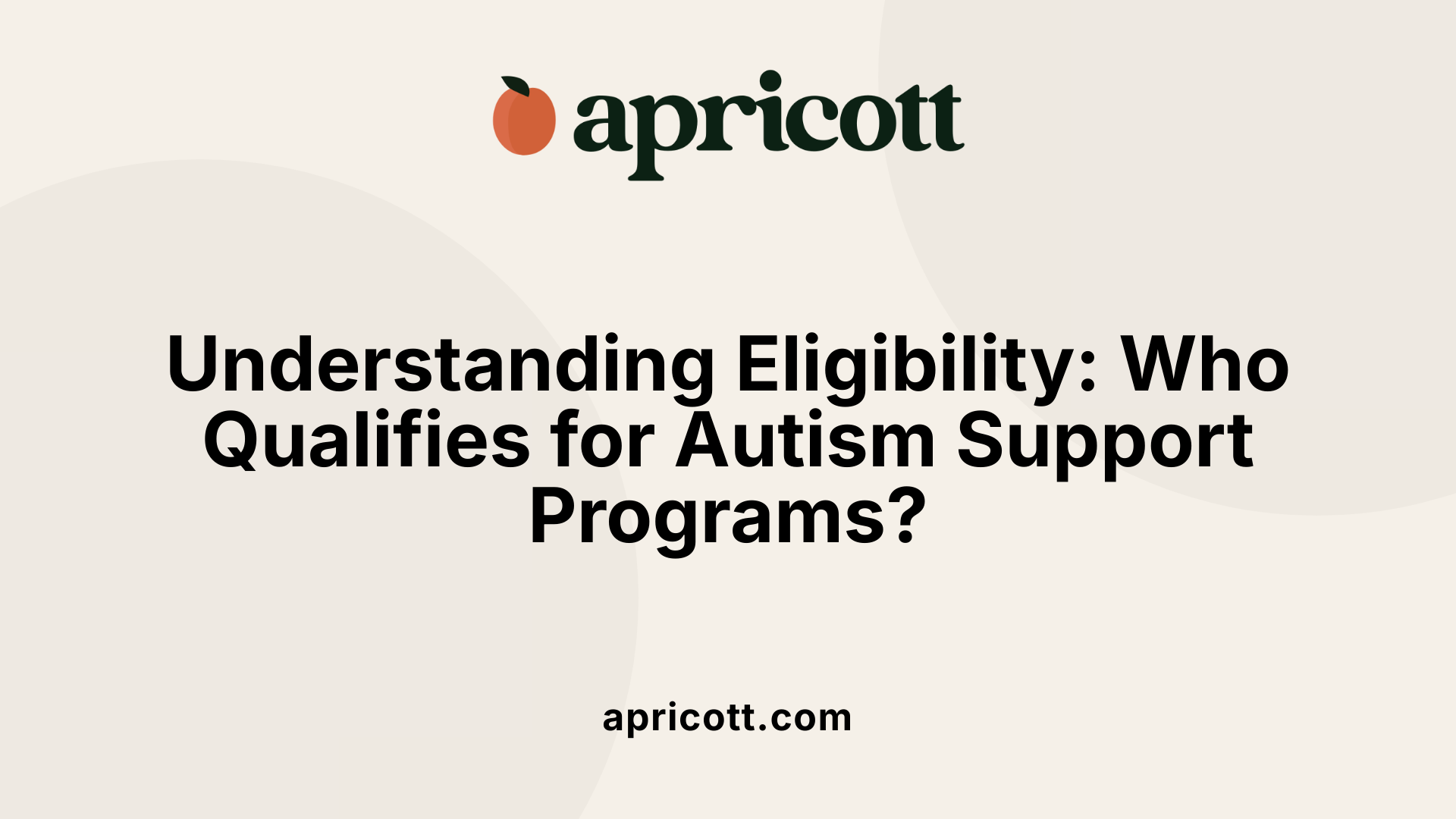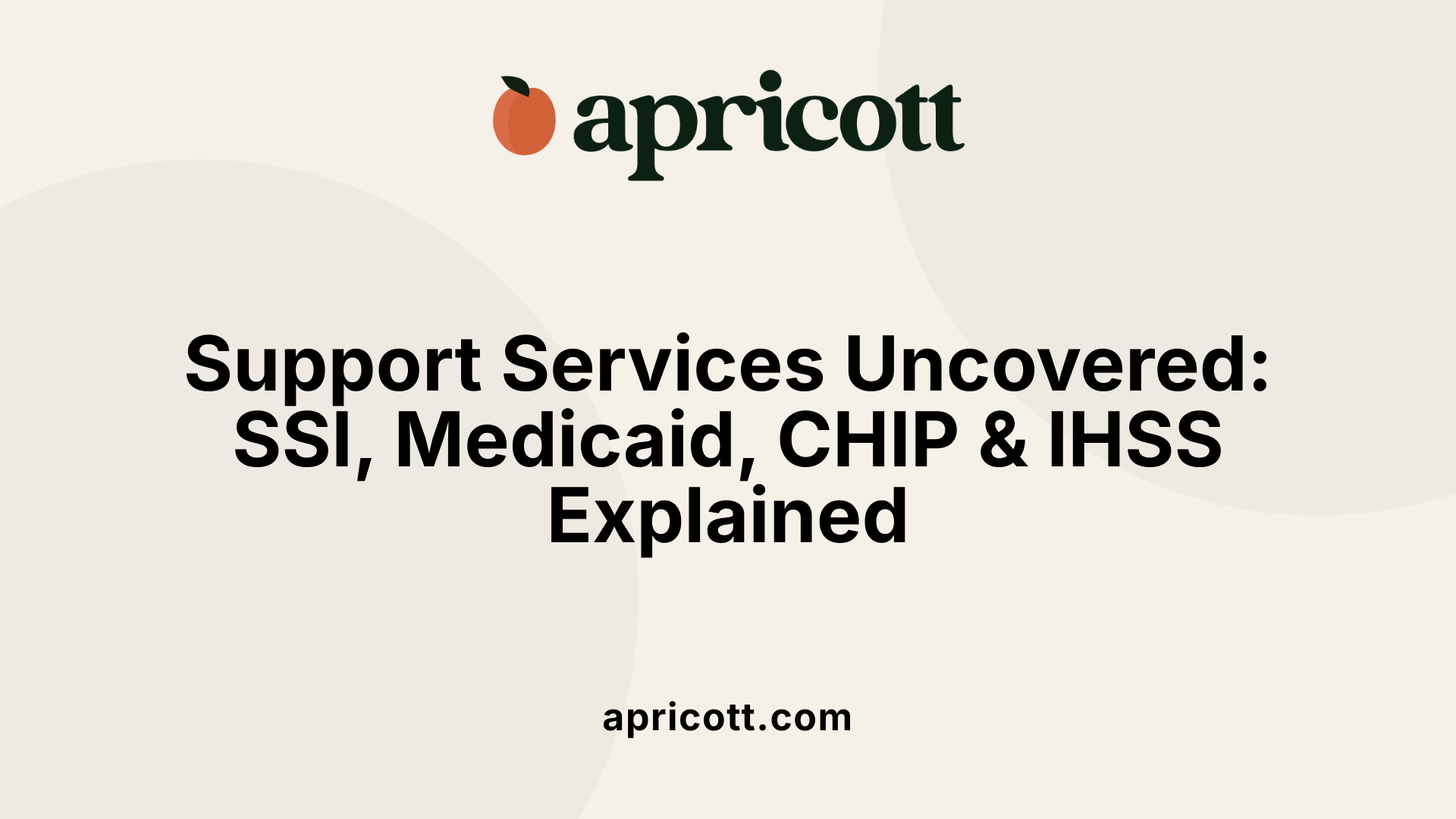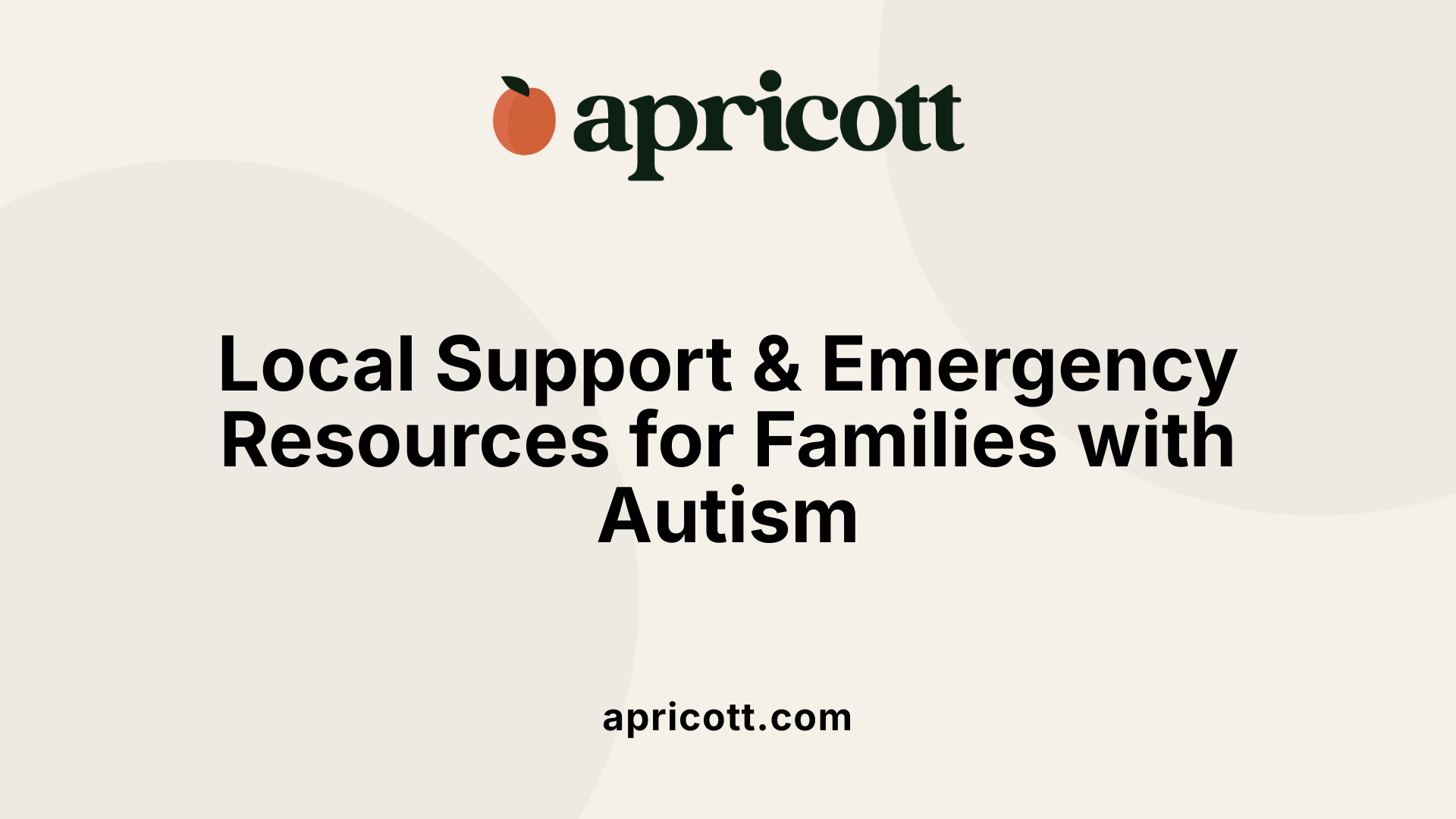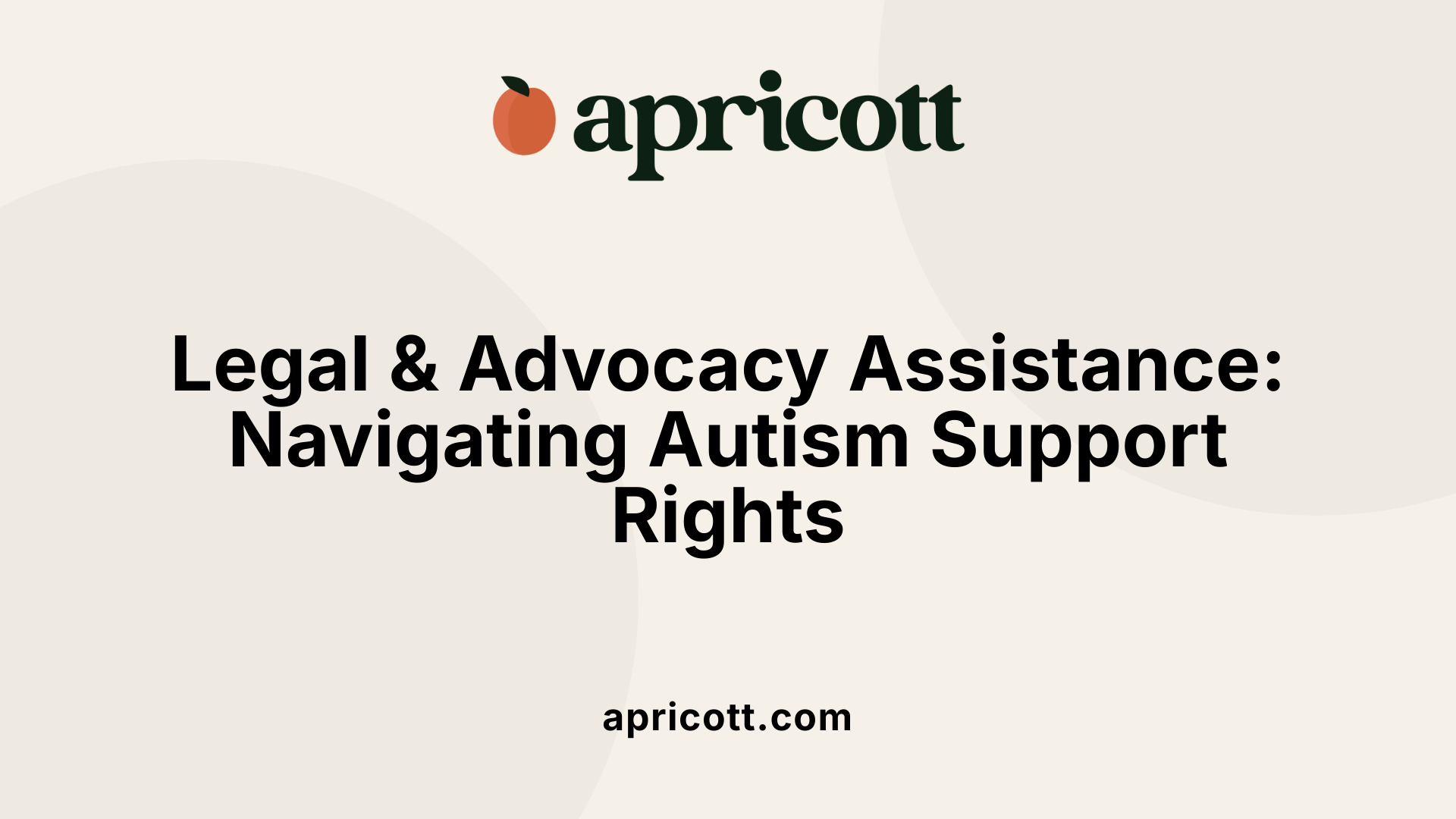December 2, 2025
A Comprehensive Guide to Financial Support for Autism Spectrum Disorder
Navigating the financial landscape for autism support can be overwhelming, but numerous resources are available at the federal, state, and private levels. This guide explores the various programs, eligibility criteria, application processes, and support services designed to help families access the financial aid they need for treatments, therapies, and daily living expenses.
Families affected by autism have access to a variety of federal and state programs designed to provide financial and healthcare support. Federal benefits such as Supplemental Security Income (SSI) offer monthly payments to children with disabilities, including autism, especially those with limited household income. Similarly, Social Security Disability Insurance (SSDI) provides benefits for adults with autism who became disabled before age 22, with payments often linked to a parent’s Social Security earnings record.
State-specific programs also play a crucial role. Most states administer Medicaid and offer Waivers that support healthcare and community living services for individuals with developmental disabilities. These Medicaid Waivers might include residential care, supported employment, and other essential services, although waiting lists can vary.
Families can also use ABLE Accounts, which are tax-advantaged savings accounts, to put aside money for long-term expenses without jeopardizing eligibility for public benefits. These accounts help cover costs such as therapy, assistive devices, or specialized education, giving families more financial flexibility.
In addition to direct benefits, there are numerous private grants and emergency assistance programs. Organizations like Autism Speaks list various grants that can help cover treatment, medical equipment, summer programs, and urgent needs. Community organizations such as the United Way and Salvation Army are instrumental in providing immediate support during crises.
Overall, these programs collectively aim to improve quality of life, support independence, and reduce financial strain for families managing autism. Navigating these options often involves reaching out to local agencies, school systems, and support networks to identify the most relevant resources.
 Families seeking financial support for autism services and needs must understand the eligibility criteria for various programs. These programs often have specific requirements related to income, disability severity, age, and residency.
Families seeking financial support for autism services and needs must understand the eligibility criteria for various programs. These programs often have specific requirements related to income, disability severity, age, and residency.
One of the most common benchmarks is income limits. Many federal and state programs, such as the Supplemental Security Income (SSI) and Medicaid waivers, base eligibility on household income and resources. Usually, families must demonstrate that their income falls below a certain threshold to qualify for financial aid or medical coverage.
Disability severity is also crucial. Most programs stipulate that the child or individual has a condition that significantly limits daily activities. For autism, this involves providing detailed medical documentation evidencing deficits in social interaction, communication, and repetitive behaviors, which must be severe enough to meet the program's disability criteria.
Age restrictions tend to apply primarily to children’s programs, such as SSI for children, CHIP, and early intervention support. Most services are geared toward individuals under 18 or 22, though adult benefits like SSDI are available for those who developed disabilities prior to age 22.
Residency requirements are typically straightforward but necessary for accessing certain state-based programs. Families usually must reside legally within the state offering the specific benefits or services.
Applying for these benefits involves several steps. Families should gather necessary medical documentation—such as diagnosis reports, assessment records, and proof of functional limitations. Application procedures often require completing forms from the Social Security Administration, state agencies, or community organizations. Supporting documents like tax returns, W-2 forms, or medication records may also be necessary to verify income and disability status.
To find out if they qualify, families can start by consulting resources like Autism Speaks, which provides a comprehensive list of grants and supports, often with detailed eligibility information. Additionally, contacting local offices, such as community action agencies, school district special education offices, and state health departments, can help families understand specific local criteria and assist with the application process.
In summary, eligibility hinges on meeting income and disability severity criteria, providing proper documentation, and following appropriate application procedures. Working with case managers, disability advocates, or specialized support organizations can greatly enhance the chances of successfully accessing the needed financial resources.
 Support for individuals with autism spans several federal and state programs designed to provide financial assistance, healthcare, and in-home support. These services aim to improve quality of life and promote independence for those affected.
Support for individuals with autism spans several federal and state programs designed to provide financial assistance, healthcare, and in-home support. These services aim to improve quality of life and promote independence for those affected.
What are some support services available such as SSI, Medicaid, CHIP, and IHSS?
Supplemental Security Income (SSI) is a vital program providing monthly payments to children and adults with disabilities, including autism, who meet certain income and impairment criteria. For children, SSI helps cover living expenses and often grants access to Medicaid, which offers comprehensive medical coverage.
Social Security Disability Insurance (SSDI) is also accessible, primarily for adults diagnosed with autism who became disabled before age 22. Benefits are based on a parent’s Social Security earnings record.
Coverage Provided by Medicaid and CHIP
Medicaid plays a central role in supporting families of children with autism. Most states offer Medicaid waivers that deliver specialized services such as behavioral therapies, speech therapy, occupational therapy, and residential support. These services help manage developmental challenges and enhance daily functioning.
The Children’s Health Insurance Program (CHIP) complements Medicaid by offering health coverage to children under 19 who cannot afford private insurance. CHIP helps reduce financial barriers to necessary healthcare, ensuring children receive early intervention and ongoing medical care critical for development.
In-Home Care Support through IHSS
California’s In-Home Supportive Services (IHSS) program is tailored for families needing additional assistance. It provides funding for in-home care providers who support children with autism, with hours and wages based on an assessed level of care. For example, in 2021, IHSS wages in California were $15.00 per hour, and hours could total up to 283 per month depending on individual needs.
Eligibility for IHSS requires a formal diagnosis of autism and a functional assessment of care needs. The program offers benefits beyond just financial support, including caregiver training, and allows families to hire personal caregivers or providers trained by the state.
Additional Community Support Options
Community action agencies and local organizations serve as vital resources, connecting families to financial assistance, therapy programs, educational support, and employment services. Organizations like Autism Speaks compile comprehensive lists of grants, including emergency funds and educational scholarships, to help families address immediate and long-term needs.
In crisis situations, organizations such as the United Way and Salvation Army provide emergency aid and support services, ensuring families have access to essential resources when facing urgent challenges.
| Program | Purpose | Examples & Details | Funding & Support |
|---|---|---|---|
| SSI & SSDI | Financial support for disabled individuals | Monthly payments; eligibility based on income & disability severity | Varies by income; applies to children & adults |
| Medicaid | Healthcare coverage | Supports therapies, hospital care, residential programs | State-specific waivers & plans; covers autism-related interventions |
| CHIP | Health coverage for children | Helps with doctor visits, medications, preventive care | Income-based eligibility; reduces healthcare costs |
| IHSS | In-home supportive care | Personal care providers at home | Wages $15/hr in CA; up to 283 hours/month |
Accessing these services often involves federal and state applications, medical documentation, and assessments. Families are encouraged to consult local agencies, special education coordinators, and autism organizations for personalized guidance.
Searching for more information: For in-depth details on autism support programs, searching for "Autism support services programs" can provide additional resources and local options.
Yes, families affected by autism can access a variety of financial assistance programs across federal, state, and private sectors.
On the federal level, programs like Supplemental Security Income (SSI) and Social Security Disability Insurance (SSDI) are fundamental supports. SSI provides monthly payments to children with disabilities who meet income and medical criteria, helping to cover basic needs. SSDI benefits are available to adults with autism who became disabled before age 22, based on a parent's Social Security record.
Healthcare is also supported through Medicaid, which in most states covers children receiving SSI and offers various services such as residential care and therapy. The Children’s Health Insurance Program (CHIP) supplements Medicaid, providing health coverage to children under 19 who do not qualify for private insurance.
State and local programs complement national initiatives. Many states offer Medicaid Waivers and Home- and Community-Based Services (HCBS) programs that provide additional support and services. These can include therapies, residential services, and employment training, although demand often exceeds availability due to long waiting lists.
Private organizations also play a significant role. Groups like Autism Speaks, Autism Care Today, and local nonprofits provide grants, scholarships, and emergency funding for needs such as communication devices, therapy, and summer programs. Specific grants include the Autism Spectrum Disorder Foundation’s summer scholarships and the MyGOAL Autism Grant Program.
Families are urged to reach out to local agencies, advocacy groups, and healthcare providers to identify available supports geared to their specific circumstances. Whether through government programs or private foundations, numerous resources are designed to help manage the financial burden associated with autism.
| Program Type | Support Offered | Eligible Recipients | Additional Notes |
|---|---|---|---|
| SSI | Monthly payments | Children with disabilities, income-limited | Medical eligibility confirmed via documentation |
| SSDI | Benefits for adults with autism | Adults disabled before 22, based on parent’s record | Usually requires proof of work history |
| Medicaid | Healthcare coverage, therapy services | Children on SSI or qualifying near poverty level | Available in most states with varying services |
| CHIP | Health insurance for children | Uninsured children under 19 | Supplements Medicaid, income-eligible |
| State Waivers & HCBS | Residential, therapy, employment | Disabled children based on level of need | Wait times may be long |
| Private Grants | Therapy, communication devices, summer programs | Families with limited means | Application processes vary |
Accessing these resources requires families to stay informed and proactive, contacting local agencies, healthcare providers, and support organizations to navigate eligibility and application procedures. Combining federal aid, state programs, and private grants provides a comprehensive financial support network for children with autism.
Families seeking financial assistance for autism-related needs can start by exploring a variety of resources available through government programs, nonprofits, and local organizations. Autism Speaks offers valuable guidance and has compiled extensive lists of grants, scholarships, and support programs designed to help families manage costs related to treatment, therapy, and equipment.
One important step is to contact relevant federal and state agencies. Programs such as Medicaid and the Children’s Health Insurance Program (CHIP) provide medical coverage that can significantly reduce expenses. Families should also consider applying for disability benefits like Supplemental Security Income (SSI) and Social Security Disability Insurance (SSDI) if eligible, which depend on household income, disability severity, and medical documentation.
In addition to government aid, numerous grants are available from private foundations and organizations. Examples include the Autism Spectrum Disorder Foundation for summer scholarships, Autism Care Today’s assistance programs, and the MyGOAL Autism Grant for therapy services. Many of these require families to complete application forms and submit supporting documents such as medical records, proof of income, and identification.
Another resource worth exploring is the ABLE Account, a savings program allowing families to set aside funds tax-free for future expenses without jeopardizing public benefits. Employer programs and state-specific initiatives, like the Florida Health Insurance Premium Payment Program and the In-Home Supportive Services (IHSS) in California, also offer financial aid and services.
For personalized assistance, families should reach out to local support organizations, community action agencies, school district special education offices, and early intervention programs. These organizations can help navigate application processes, gather required documentation, and connect families with suitable programs.
In summary, accessing and applying for autism-related financial aid involves research, organization, and often collaboration with support networks. Being proactive and utilizing available resources can significantly ease the financial burden often associated with autism care and support.

Families affected by autism have access to a variety of financial planning tools and resources to support their long-term needs. Autism Speaks provides a helpful Special Needs Financial Planning Tool Kit aimed at guiding families through the complexities of planning for their child's financial future.
One important planning option is the use of special needs trusts. These legal arrangements help families set aside funds for a child's future expenses while preserving eligibility for government assistance programs like Medicaid and SSI. Properly established trusts can cover healthcare, education, housing, and other necessities without disqualifying the child from public benefits.
Another significant savings option is ABLE Accounts. These tax-advantaged accounts allow families and friends to deposit funds that can accrue without incurring taxes, and the money can be used for a broad range of qualified disability-related expenses. Funds in ABLE accounts do not affect eligibility for means-tested benefits, making them a flexible long-term savings tool.
In addition to these options, many families work with financial planners who specialize in special needs financial planning. These professionals assist in crafting comprehensive strategies that include setting up legal guardianship, managing ongoing healthcare costs, and planning for future care needs.
Overall, combining these resources offers families a robust financial plan that supports their child's well-being now and in the future, alleviating financial stress and ensuring long-term stability.

Yes, many communities offer a variety of resources to assist families affected by autism. Local agencies and organizations work to provide support, information, and emergency assistance to help families manage urgent needs.
One of the primary sources of community support is Community Action Agencies. These agencies serve as a bridge, connecting families with local financial aid programs, resources for essential services, and supportive community programs tailored to families with children who have developmental disabilities.
In times of crisis, organizations such as the United Way and the Salvation Army are vital. They offer immediate emergency assistance, including financial support, food, shelter, and other essential services, helping families cope with urgent situations.
Moreover, local parent groups and autism advocacy organizations are invaluable. They offer peer support, share information on available programs, and can direct families to educational and healthcare services. School district special education coordinators and Title V agencies also play crucial roles by providing access to educational resources, therapy services, and other specialized support.
These community-based resources and emergency support options empower families to address immediate challenges while building a network of ongoing assistance. Connecting with these organizations can significantly ease the stress associated with managing autism and help ensure children’s needs are met in times of urgent need.
| Resource Type | Description | Additional Support |
|---|---|---|
| Community Action Agencies | Help connect families to local financial and aid programs | Support in navigating community services |
| Crisis support (United Way, Salvation Army) | Provide emergency financial and material aid during crises | Immediate aid and counseling |
| Local parent groups & advocacy | Offer peer support, information, and community connection | Emotional support and resource sharing |
Families are encouraged to search for 'Community support autism assistance programs' to locate local services and programs specific to their region.

Families seeking financial support for children with autism can access a range of legal and advocacy services designed to uphold their rights and facilitate access to benefits. Organizations specializing in disability rights provide valuable guidance on navigating complex laws and policies.
One of the primary laws instrumental in protecting these families is the Americans with Disabilities Act (ADA), which prohibits discrimination based on disability. Another critical law is the Individuals with Disabilities Education Act (IDEA), ensuring free appropriate public education for children with disabilities, including autism.
Advocacy groups often offer assistance in understanding eligibility criteria, filling out application forms, and appealing denied claims for benefits like SSI, SSDI, and Medicaid waivers. They also help families intervene when they encounter barriers or unfair treatment in accessing services.
Local advocacy organizations and legal aid services can play a vital role, providing tailored guidance and representation if disputes arise. These resources empower families to advocate effectively, ensuring their children receive the comprehensive support they qualify for.
Connecting with these organizations can significantly improve the chances of successfully securing financial aid and guarantees that families’ rights are protected throughout the application and appeals process.
For further assistance and resources, families can search using terms like "Disability advocacy autism support resources" to find local and national organizations dedicated to helping families navigate their options effectively.
While the process of accessing financial aid for autism can seem complex, understanding the available programs, eligibility criteria, and application steps is crucial. Families are encouraged to utilize government benefits, explore private grant opportunities, and seek support from local community agencies and advocacy groups. Developing a comprehensive financial plan, including special needs trusts and savings accounts like ABLE, can secure a stable future for children with autism. With informed navigation and proactive engagement, families can better manage the costs associated with autism and enhance their loved ones’ quality of life.